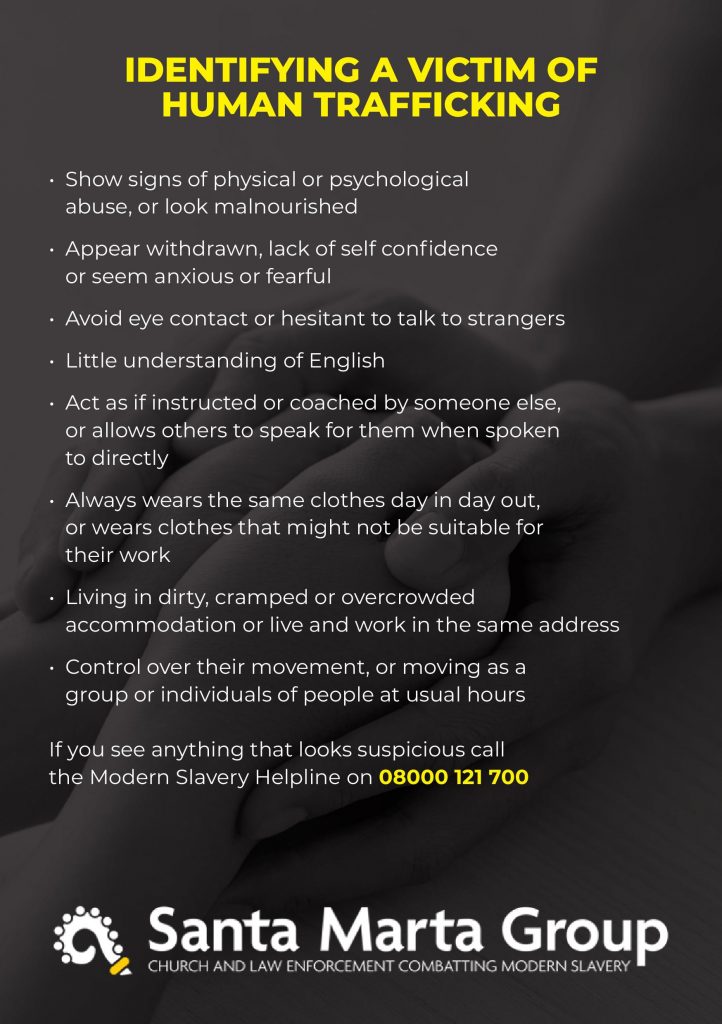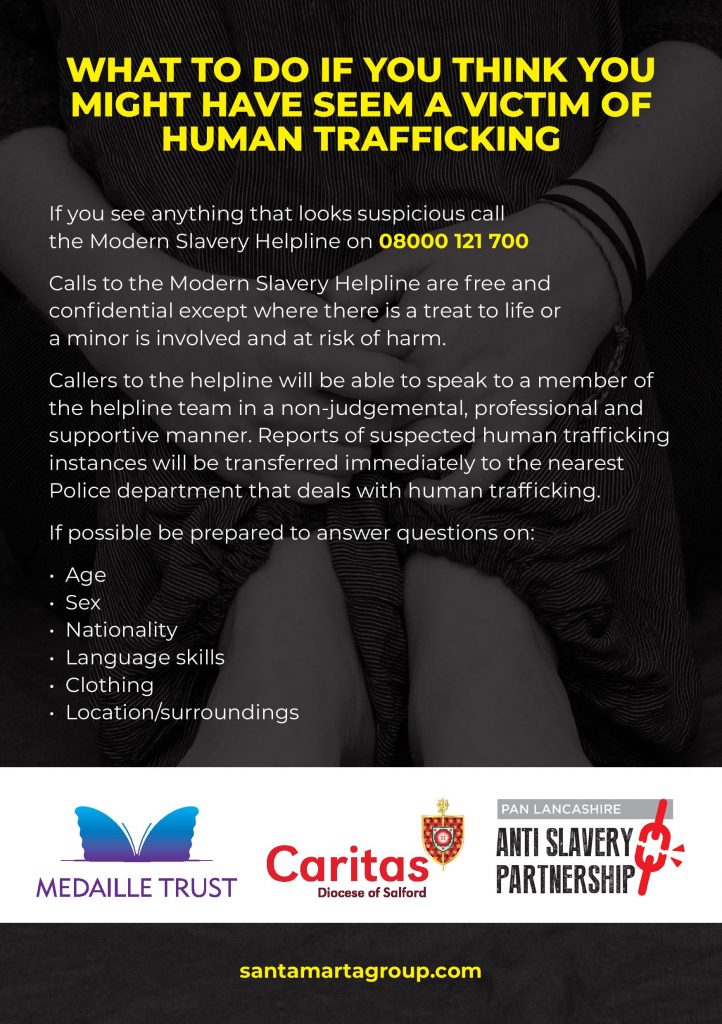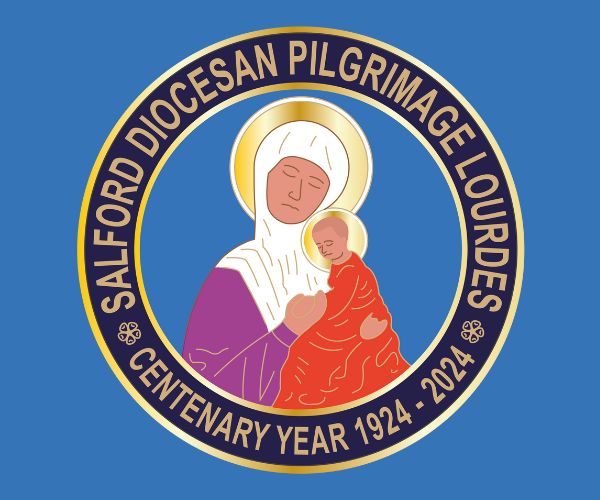
Diocese Takes Important Step Towards Tackling Modern Slavery
Tuesday 8th February 2022On February 8th each year, Pope Francis calls an International Day of Prayer for Awareness Against Human Trafficking.
This day is recognised on the Feast Day of St. Josephine Bakhita, who was kidnapped and sold into slavery at the age of seven. After she was freed in Italy years later, she became a nun and has since emerged as a patron for all victims of trafficking. St. Bakhita’s legacy remains in the work undertaken by the local anti-trafficking groups around the world.
To mark this year we are pleased to share our first diocesan Modern Slavery Statement. The Statement is published jointly with Caritas Diocese of Salford, The Cathedral Centre Bookshop, and SDC Trading, the organisation that looks after our parish centres.
Welcoming the publishing of the statement, Bishop John, said:
“I welcome and endorse this Statement which acknowledges our potential complicity in human exploitation and commits the Diocese to doing everything we can to ensure that our supply chains are free of modern slavery.
There is a global problem happening now. There are more slaves in the world currently than at the height of the Trans-Atlantic Slave Trade. The true number of people who are experiencing the trauma of modern slavery is unknown, but the Global Slavery Index estimates 40 million people worldwide and 136,000 people in the United Kingdom. This includes members of our own communities and parishes.
People experiencing modern slavery and trafficking should rightly see our churches and social outreach as places of sanctuary and refuge. It is important, therefore, to ensure that all members of the church, clergy, parishioners, staff and volunteers are aware of the signs to look out for and how they can help survivors find protection and support.
This statement is another important step towards our commitment to tackle modern slavery within the diocese.”
The initial focus of the statement works towards creating an action plan that will increase the amount of awareness training for clergy, parish volunteers, and employees.
It also acknowledges that the biggest risk of slavery in the diocese is our supply chain. In 2022 we will review and implement a new Code of Conduct, requiring our suppliers and contractors to monitor their supply chain.
In 2014, Pope Francis described Human Trafficking as “An open wound on the body of contemporary society, a scourge upon the body of Christ. It is a crime against humanity”. He called on us all to take responsibility and to act.
This Modern Slavery statement builds on Caritas’ partnership with the Medaille Trust, the work already undertaken by Caritas Anti-Trafficking, which began as an initiative by parish volunteers in Our Lady of the Valley Parish, Clitheroe in 2015 and working with East Lancashire Police to raise awareness.
The project has created various resources to raise awareness of Modern Slavery, and has delivered a range of talks and seminars to parishes, schools and other voluntary organisations.
What can your parish do?
1 – Pray for an end to Modern Slavery and the trafficking of human persons globally and in our communities;
2 – Learn about the nature and extent of trafficking in our communities and know how to identify and respond to concerns about people who may be at risk of being in modern slavery or trafficked:
- Call the Modern Slavery Hotline Helpline number 08000 121 700 to report a suspicion or seek advice.
- Ring 999 if you need the Police to response urgently.
- Call Crimestoppers anonymously on 0800 555111 to report your concerns.
- For young people – contact Fearless (https://www.fearless.org/en) as a safe place to give information about crime anonymously.
- Download apps like the Clewer ‘Car wash app’ and ‘Farm app’ on to your phone.
3 – Identify and reflect on where they are procuring goods and services – are they choosing reputable businesses who pay staff properly (e.g. building or groundsworking companies, are they paying a fair ‘Living Wage’ – make changes to the systems to ensure they are checking.
4 – Contact Caritas team of volunteers working on ModernSlavery@caritassalford.org.uk
The Diocese and Caritas will also be on hand to support your parish in training and implementation of new codes of conduct, as we move forward together in this journey
Tune into BBC Sounds to hear Bishop John speaking to BBC Radio Manchester about our steps to tackle modern slavery in our diocese (1hr09).
Tagged | Bishop John | Caritas | Caritas Salford | Catholic Church | Charity | Safeguarding | Society





